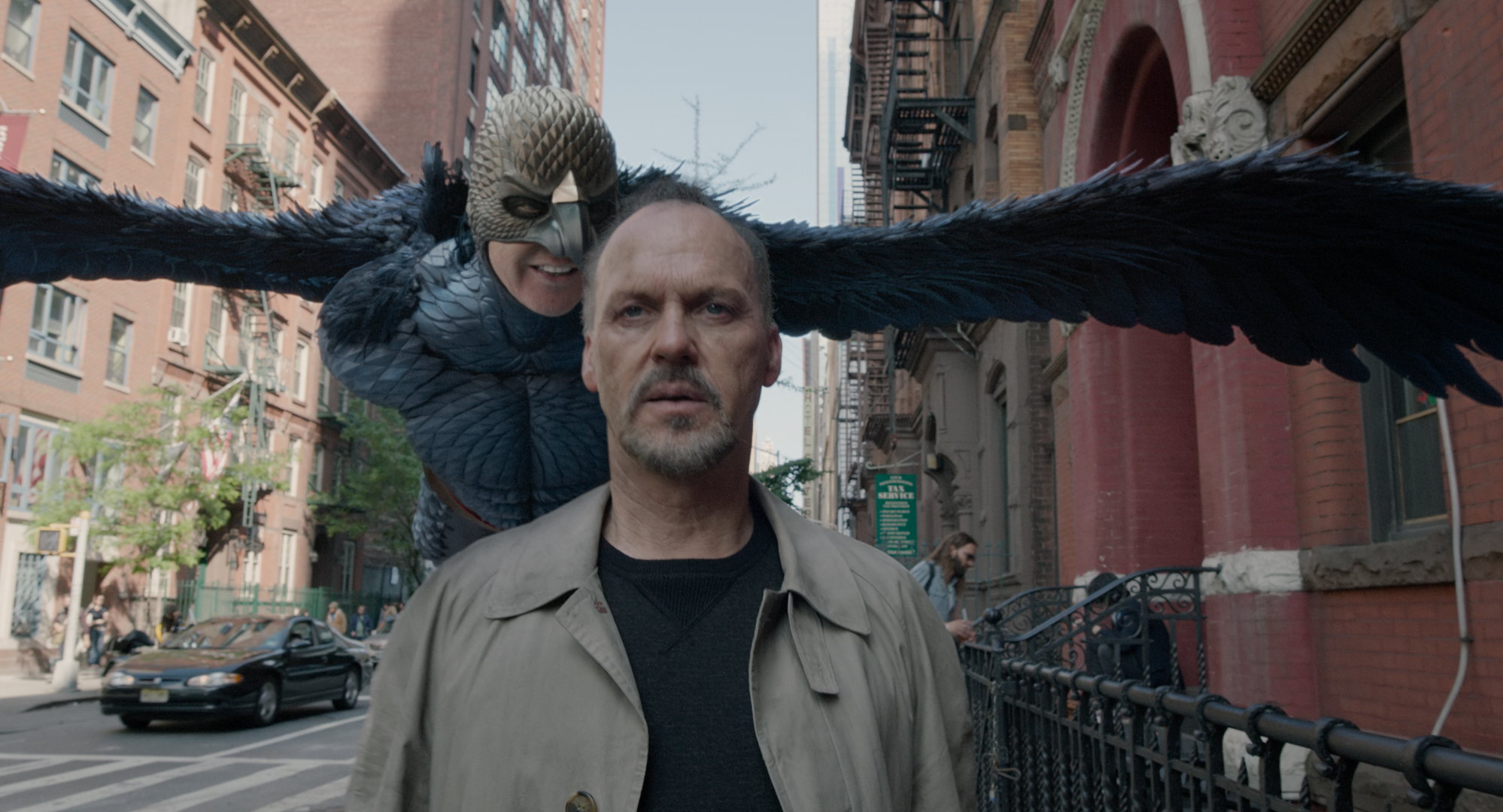In a filmgoing year that—turning my sourpuss-meter slightly to the right of Robert Horton’s—was less mixed than outright disappointing, Birdman was for me the most purely enjoyable flick of 2014. (Inherent Vice runs a close second, but it doesn’t arrive here until next week.) I won’t say the seamless ribbon of Alejandro Gonzalez Inarritu’s backstage shenanigans amounts to anything new or profound, and I don’t buy the magical-realist ending, but Birdman represents bravura, heartfelt filmmaking of the first order.
2
Boyhood, as Horton says, doesn’t aspire to be capital-I-important, but it’s a humanist triumph of time and patience on the part of Richard Linklater and company. And for the audience, we feel invested in its 12-year span like no other film project since the 7 Up series.
3 Released to little fanfare in June, Pawel Pawlikowski’s postwar consideration of the Holocaust in ’60s Poland is now on the foreign-language Oscar shortlist—as Ida fully deserves to be. An 18-year-old Catholic novitiate discovers she’s a Jewish foundling from the war. Before taking her vows, a homestead journey with her troubled, unsuspected aunt reveals the limits of piety, forgiveness, and “closure.” Young Ida (Agata Trzebuchowska) shows the courage to turn her back on history.
4 It’s a given that J.K. Simmons will win the Supporting Actor Oscar for his tyrannical turn as the jazz conservatory band leader in Damian Chazelle’s Whiplash, but it also happens to be a terrific film by a bold new talent. I wish this aggressive contest of wills—between Simmons’ teacher and Miles Teller’s young drummer—had been released later in the year, instead of October, to put some muscle and rancor into this bland, virtuous holiday movie season. Whiplash is a brutal, thrilling film about the obsessive pursuit of musical excellence—which, thankfully, has nothing to do with being a good person.
5 Musicians of a different stripe fill the oddball English comedy Frank, which actually has some factual basis in journalist Jon Ronson’s early years in a struggling band led by a psycho genius. The gimmick, supposedly, was to put Michael Fassbender inside a giant papier-mache head, but the real pathos beneath the comedy lies in the unseen, unfathomable nature of talent. Why do some people have it (despite their other oddities), while other normal souls lack the spark? For all the slapstick orchestrated by director Lenny Abrahamson, Frank is written in a somber, lingering minor key. It respects the final enigma of its hero and his resistance to fame.
6 The only reason I don’t rank The Grand Budapest Hotel higher is because I still think Moonrise Kingdom is a much better Wes Anderson movie. And these year-end lists are, for me, all about discovery and innovation. Grand Budapest is sad, funny, and exquisitely crafted—but that’s also exactly what I expected going in.
7
Force Majeure/Gone Girl (tie). As Horton says, Force Majeure is the superior movie, but Gone Girl is the best crafted American studio product on my list. (Also the only such title on my list; but then I missed Guardians of the Galaxy…) The collaboration between novelist Gillian Flynn and director David Fincher yielded not only a bona fide hit ($164 million and counting), but also a vindication of the audience. It shows that filmgoers don’t demand cheerful, anodyne movies with sympathetic characters. Give us more, please.
8 Art is the putative subject of Frederick Wiseman’s three-hour documentary National Gallery, which I very much wanted to dislike for the simple reason that I’ve seen too many long, narration-free Wiseman docs in the past. Yet it won me over for its sheer immersion in process: the curators’ dilemma of how to sell something old in the age of Instagram and Twitter. (Finding Vivian Maier, which could be a tie here, was a story I already knew; but the two mark fascinating poles between the obscure and the renowned in the art world.)
9 A crazy, comic-inspired parable of class warfare and environmental ruin, Bong Joon-ho’s Snowpiercer is set aboard a train, the movies’ greatest metonym for forward narrative momentum. As the rabble revolt against Tilda Swinton and her corrupt cohort, Bong posits a pulpy conflict that’s both inevitable and futile. Capitalism and cannibalism are one and the same—“zero sum,” as they say.
10 Why isn’t Tommy Lee Jones’ backwards Western The Homesman doing better in theaters? Like Horton, I admire its jolts of comedy and horror. I also think its cussed, ornery, and contrarian view of our precious frontier mythology is what puts it so defiantly out of step with the national mood. The Homesman is about retreat—and even defeat—with honor. And I’ll be curious to see how Clint Eastwood’s American Sniper, due January 16, echoes or rebuts that theme.
Honorable Mention: Actress, Alien Boy, Calvary, Citizenfour, Dear White People, Fed Up, Finding Vivian Maier, Jodorowsky’s Dune, Land Ho!, Last Days in Vietnam, Locke, A Most Wanted Man, Obvious Child, The One I Love, The Trip to Italy, Winter in the Blood.
Missed/Scarecrow List: The Babadook, Blue Ruin, Edge of Tomorrow, Guardians of the Galaxy, Only Lovers Left Alive, The Rover.
bmiller@seattleweekly.com








